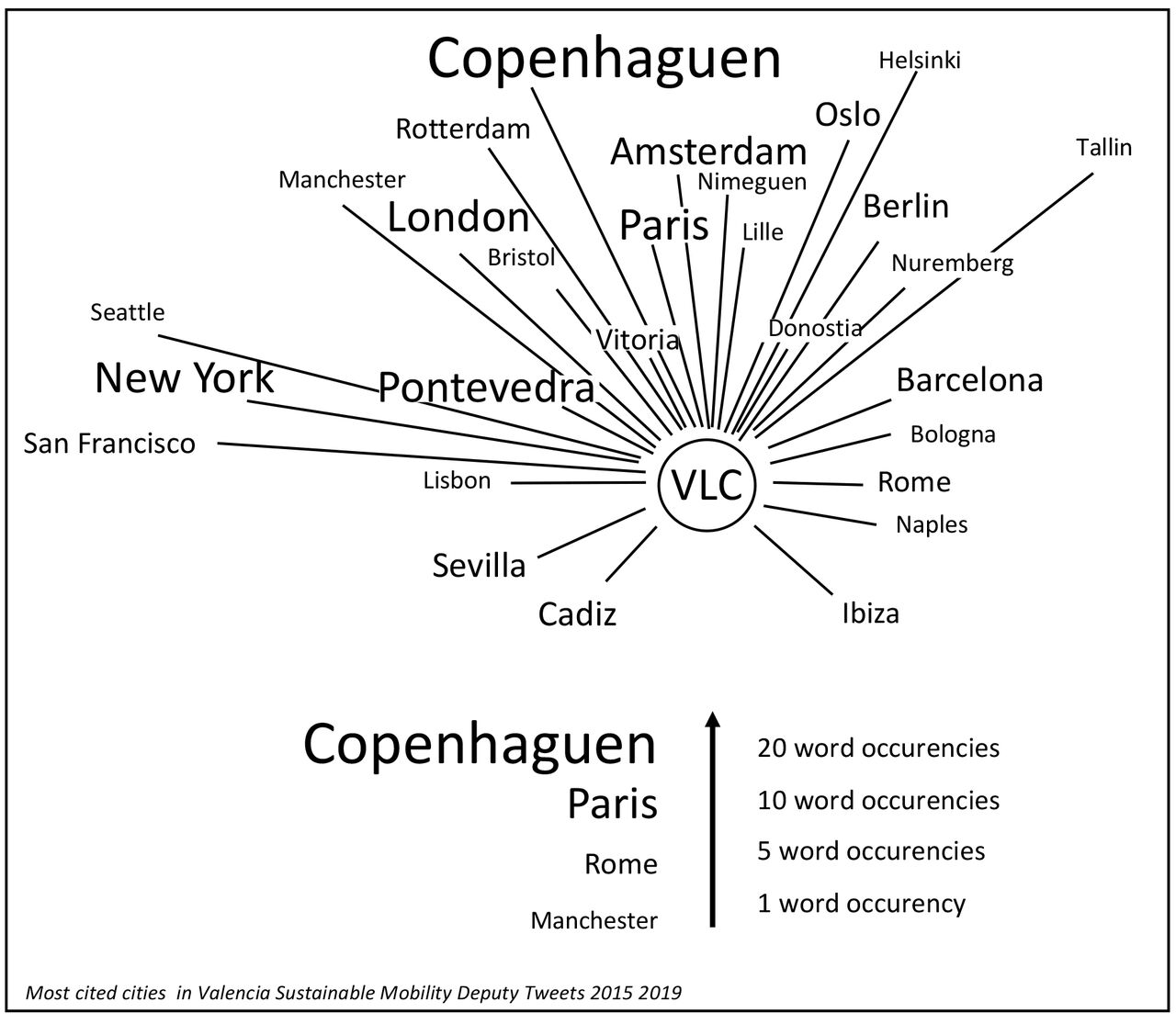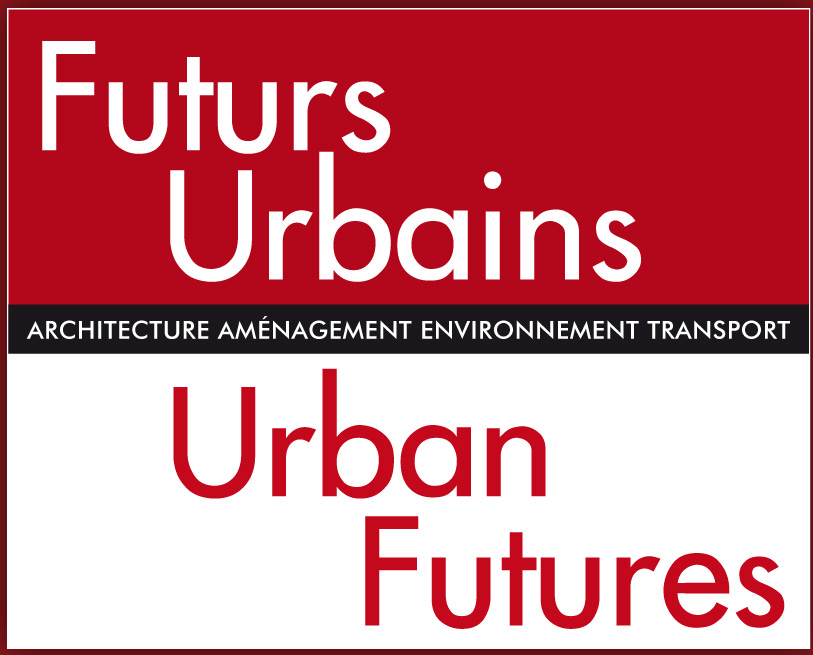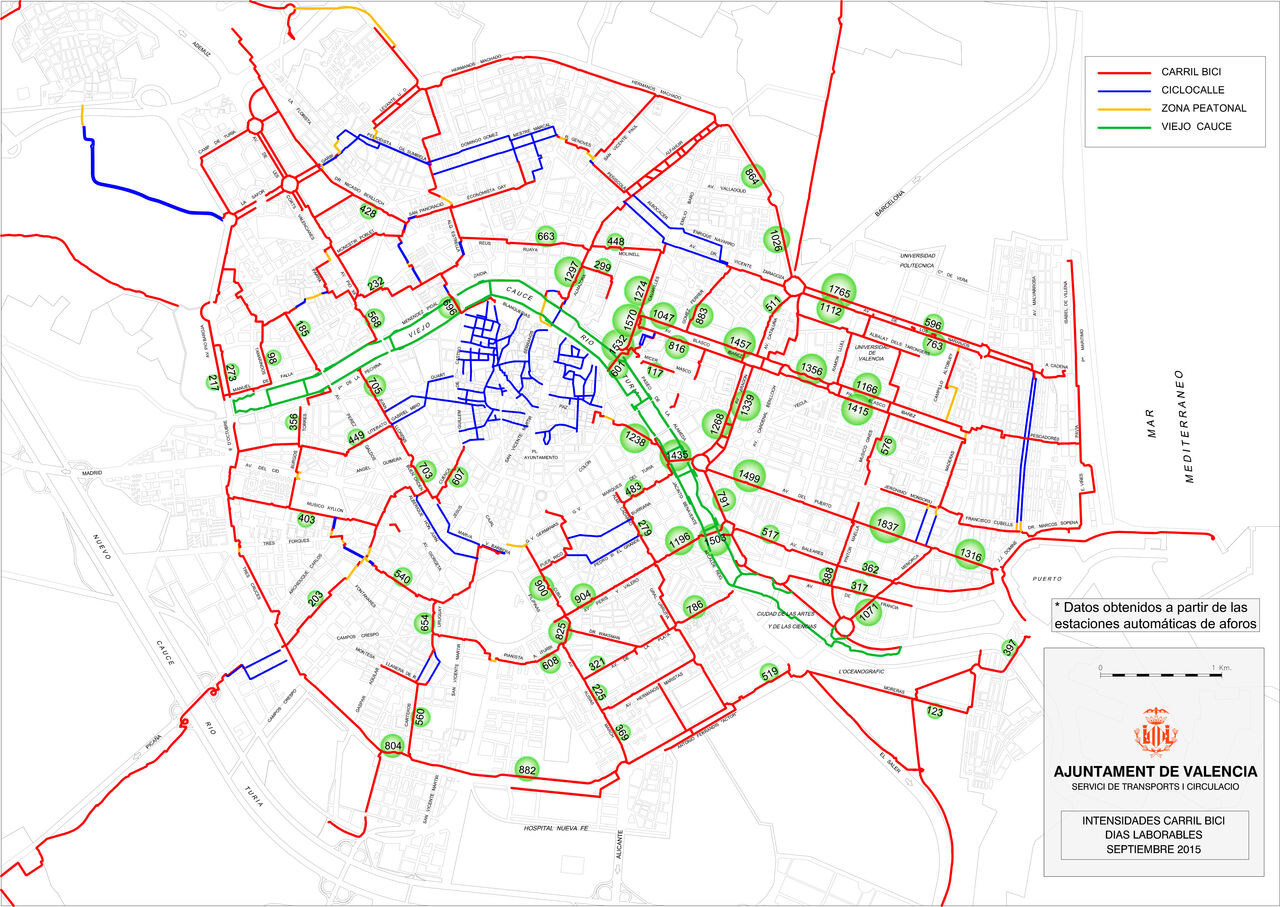Les hommes politiques somment le système de mobilité, façonné à l’époque moderne par les révolutions énergétique et industrielle, de se réformer. Pas une journée sans qu’ils n’évoquent la nocivité de l’automobile, la congestion des transports collectifs, les bienfaits de la marche ou du vélo ... Leurs discours abordent toute une série de menaces, dont l’« ubérisation » et, par-delà, l’émergence d’un techno-pouvoir néolibéral fondé sur la donnée et la surveillance, ou bien ils abordent une collection d’opportunités, quand ils associent par le mot et l’image mobilité décarbonée et urbanité apaisée. Ces sujets sont mis à l’agenda à partir d’une évidence, tant la mobilité est une préoccupation omniprésente dans la vie quotidienne des citadins, mais aussi à partir d’argumentaires plus implicites : la mobilité obsède le politique parce que la transformation des manières de bouger est sans doute une métaphore de la Transition, entendue comme mise en mouvement des consciences et des énergies - Revue Belgeo - En savoir plus
Articles dans des revues scientifiques spécialisées
International Mega-Events, Urban Changes and Tourism Marie Delaplace, 2023
In a context of increasing competition between cities to attract and retain tourists, new inhabitants and/or companies, a fast-growing trend has become the effort to stage events (Getz & Page, Citation2016). These may be trade fairs, exhibitions, festivals, or events in the sporting, cultural or corporate spheres. Moreover, depending on the strength of their links with tourism, events can vary in size (Getz & Page, Citation2016): occasional mega-events; regular symbolic events; regional and local events. While these events are by definition time-limited, some (especially mega-events and other large events) can be very long-term projects. According to Chappelet (Citation2018), the process of organizing the Olympic Games and establishing their legacy extends over a period of nearly 12 years, including the bidding phase (around 3 years), the planning phase (around 7 years), the staging of the Olympic and Paralympic Games (2 months), the closing ceremony, and the post-event infrastructure rearrangements (2 years). Read more
L’événementiel en ville : entre attractivité touristique et externalités négatives Marie Delaplace, Patrice Ballester, 2022
À travers l’évènementiel, c’est de la mise en scène, en récit et production d’une offre touristique renouvelée dont il est question. La ville marchande, culturelle et sportive interroge à plus d’un titre. Quels effets durables de l’éphémère en milieu urbain et pour qui ? Citoyens, consommateurs, élus et touristes nationaux et internationaux donnent à voir et à penser différemment le méga-événement suivant leurs intérêts et leurs pratiques. L’instrumentalisation de l’évènementiel passe aussi par des bilans pré et post évènement et des processus d’accompagnement des infrastructures (parc de congrès, de foire ou village olympique) et des espaces publics légués (front de mer équipement de loisirs urbain). L’attractivité renouvelée permettant d’attirer toujours plus de touristes se heurte aux Objectifs du Développement durable. Les externalités négatives mentionnées dans les différents articles de ce numéro spécial de City & Tourism montrent qu’il est nécessaire de réfléchir en amont sur le sens que les acteurs souhaitent donner à leur évènement, à ses répercussions sociétales, et aux limites, croyances véhiculées à ce sujet. Lire la suite
Vocabulaire du discours touristique Boualem Kadri , Marie Delaplace , Alain A. Grenier , Yann Roche, 2022
Ce Vocabulaire du discours touristique est élaboré sur la base des attributs des dictionnaires usuel et encyclopédique. Il vise à renforcer une sémantique nécessaire à l’observation d’une réalité touristique faite d’une dualité dimensionnelle (imaginaire anthropologique/sociologique et activité économique/managériale), d’une perception binaire du fait touristique (bon/mauvais) et d’une insuffisance définitionnelle. L’analyse de cette réalité, liée à une intervention multidisciplinaire et interdisciplinaire, pose le problème de la dynamique sémantique issue des sciences sociales. Les concepts construits dans un contexte spécifique gardent-ils la même signification d’origine lorsqu’ils voyagent vers la réalité touristique ? Est-il possible de repenser les mots pour les études touristiques, afin de les adapter à cette nouvelle réalité ? Acheter l'ouvrage
Uses and practices of digital services in a situation of mobility: evolution versus revolution? The case of the Champs Elysées Marie Delaplace, Leïla Kebir, Marjolaine Gros-Balthazard, François Bavaud, 2022
The ongoing digital revolution is transforming economic production systems as well as our daily lives. If the expectancies in terms of innovation and opportunities are very high on the supply side, little is known about the effective uses of digital tools by customers and the impact on them and their consumption patterns, especially in a situation of mobility. Tourism for example has been tremendously impacted by the digital transformation. It has changed the way people plan, book and travel, but also the way the stakeholders communicate on their destination. But it is also expected that mobile and wireless technologies change the tourist experience of the destination. Mobile devices could induce change in tourist behaviour at the last minute in situ. By using an analysis in terms of services, we suggest that suppliers and tourists in territories coproduce M-tourism services. These services depend on the tourist behaviour but also on the supply, which is available in the destination. Drawing on a survey conducted on the Champs Elysées in Paris in 2018, this paper analyses how different types of people (tourists, residents, workers, etc.) are using these digital services. Read more
The Long-Standing Issue of Mobility at the Olympics: From Host Cities to Host Regions in the Ongoing Case Study of Milan–Cortina 2026 Gustavo Lopes dos Santos, Rosário Macário, Marie Delaplace, Stefano Di Vita, 2022
Due to public opposition against the unsustainability of hosting the Olympic Games, the International Olympic Committee adopted Olympic Agenda 2020 to adjust the event requirements to address modern society’s sustainability concerns. Since its implementation, the Agenda has driven important changes regarding the planning and organization of the Olympics, including the possibility of regions being hosts. This allows the sprawl of Olympic venues over larger territories, theoretically facilitating the alignment of event requirements with the needs of the intensively growing contemporary urban areas. However, the larger the host territory, the more complex becomes its mobility planning, as transport requirements for participants still have to be fulfilled, and the host populations still expect to inherit benefits from any investments made. The objective of this paper is to identify and discuss new challenges that such modifications bring for mega-event mobility planning. First, based on the academic literature of case studies of previous Olympic cities, a theoretical framework to systematize the mobility problem at the Olympic Games is proposed for further validation, identifying the dimensions of the related knowledge frames. Second, the mobility planning for the case study of the first ever Olympic region—the Milan–Cortina 2026 Winter Games—is described. Using this case study, the proposed framework is then extrapolated for cases of Olympic regions in order to identify any shifts in the paradigm of mobility planning when increasing the spatial scale of Olympic hosts. Conclusions indicate that, if properly addressed, unsustainability might be mitigated in Olympic regions, but mega-event planners will have to consider new issues affecting host communities and event stakeholders. Read more
(Mega)Evénements urbains et tourisme : pratiques touristiques et organisation spatiale Marie Delaplace et Pierre-Olaf Schut, 2022
De façon à attirer touristes, populations voire entreprises, de nombreuses villes développent des évènements (Getz et Page, 2016) de nature et d’ampleur différentes (évènements ou méga-événements sportifs, évènements culturels, commerciaux, évènements d’entreprises, etc.). Certaines métropoles vont même jusqu’à construire un projet de développement à long terme sur la base d’événements éphémères (METROPOLIS, 2002, Gravari-Barbas, 2009). En fonction de leurs interactions plus ou moins importantes avec le tourisme, Getz and Page (2016) distingue les méga-événements occasionnels, les évènements symboliques périodiques, les évènements régionaux et locaux. Tous attestent de cette profusion évènementielle dans la ville festive (Lefebvre et Roult, 2013). Lire la suite
Hosting the Olympic Games Uncertainty, Debates and Controversy - Marie Delaplace, Pierre-Olaf Schut, 2020
Hosting the Olympic Games: Uncertainty, Debates and Controversy provides a broad and comprehensive analysis of past Olympic and Paralympic events, shedding critical light on the future of the Games with a specific look at the upcoming Paris 2024 Olympics. It draws attention to the debates and paradox that hosting the Games presents for the contemporary city.
Employing a range of interdisciplinary theoretical and methodological approaches, individual chapters highlight the various controversies of the Games throughout the bidding process, the event itself and its aftermath. Social Science-based chapters place strong emphasis on the vital importance of sustainable strategy for contemporary host cities. Along with environmental concerns whether atmospheric, microbiological or otherwise, many other requirements, costs and risks involving security and public expenditure among others are explored throughout the book.
Including a variety of international and comparative case studies from a range of contributing academics, this will be essential reading for students and researchers in the field of Event studies as well as various disciplines including Tourism, Heritage studies and Urban and Environmental studies. Read more
Copresence is a Problematic Resource for Leisure Mobility One Hub, Multiple Passenger Experiences on a Sunday Evening Return Trip - Nacima Baron and Ali Hasan
This paper analyzes copresenœ patterns among travellers in a suburban station. The authors investigate how tourists and other travellers experience physicaily and socially the spaœs of public transport. ln a first part, a field stndy is introduced after a multidisciplinary theoretical background (sociology, geography, ethnology of stations). It h elps selecting the best moment to develop the methodology, that is, the moment in whlch the diversity of nsers and behavionrs is maximized. In a second part, two field results are presented: first, Snnday aftemoon as being the best moment to observe copresenœ, and second, the configuration of social interaction as obeying a dnalistic structure. A third part questions the opposition between the experienœ of copresenœ as being a polite and distant coexistence among some nsers and a much warmer interaction among others. The explanation for such a divide lays first in the nneqnal mobility skills tourists and non-tourists may mobilize and, second, this opposition seems connected to the constrnction of a mobile community identity in the long term. Lien vers la revue
Who killed Barcelona's high speed station promises ? infrastructure political capture, scaling narratives and the urban fabric - Nacima Baron
The paper explores the economics and politics of megaproject failure in Spain. Taking Barcelona's high-speed station as a case study, it demonstrates that, rather than a victim of austerity policies, this project was much more the hostage of a struggle between national, regional and city scales, representations and policy narratives. After introducing the debate on the promise and disillusionment around high-speed stations, the discussion highlights three stages in the project timeline. It shows the station’s unstable position in high-speed network planning from the early 90s to the 2000s. It describes the competing geostrategic perspectives between Madrid and Catalonia that halted the project during the 2008-2014 crisis. And it recounts how, since 2015, local stakeholders have reaffirmed their commitment to the completion of the station, but have failed to integrate it with new trends and processes of urban renovation. Eurogeography Journal, 10 1 Article (à télécharger)
Les politiques de mobilité urbaine en Europe après la crise : adaptations et innovations Nacima Baron (dir) 2019

Bike mobilities, democratic revival and the local fix Valencia, from corruption epicentre to Mediterranean cycle capital Nacima Baron, 2019
Cet article analyse les stratégies locales associées au lancement de politiques vélos dans les villes d'Europe du sud. Il articule des concepts et méthodes de la géographie avec des travaux relevant de l'étude des politiques de la durabilité, en vue d'éclairer les spécificités de la transition mobilitaire dans le contexte méditerranéen. En s'appuyant sur le cas de Valencia, il montre que l'urbanisme tactique est utilisé pour mettre à l'agenda les mobilités durables. Ceci justifie et incarne un changement dans la manière dont la politique municipale est conçue et mise en œuvre après une décennie de crise. Les mobilités durables matérialisent et spatialisent, sous des formes variées, des valeurs démocratiques au sein de l'espace public. Par conséquent l'article étudie les stratégies utilisées pour marquer le territoire urbain avec des infrastructures (partie 1); il révèle la construction d'un espace discursif qui polarise le débat local (partie 2); il décrit la réintégration symbolique de Valencia dans un réseau de villes de référence (partie 3). Cependant une telle stratégie ne crée pas effectivement un nouveau modèle de ville méditerranéenne amie du vélo, parce qu'elle ne modifie pas encore suffisamment ni la structure urbaine, ni les représentations sociales qui sous-tendent les pratiques de déplacement habituelles. Revue Belgeo, vol 4 -En savoir plus


